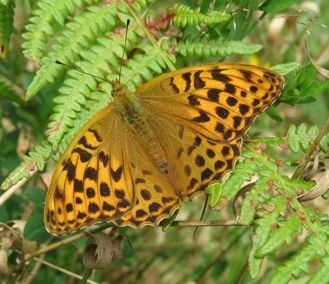
Implications for development
Biodiversity Net Gain (BNG) and its implications for development is starting to gain attention, particularly amongst Developers / Planning Consultants and Architects. Indeed, a number of companies are starting to advertise their expertise in this field. However, some of the claimed ‘expertise’ appears theoretical at best.
The difficulty for a prospective client, is determining which company to trust to undertake this increasingly important and complex function on their behalf. Our expertise is based in practical, workable experiences.
Several of the LPA’s in which we offer our services are already requesting BNG, despite the Environment Bill having yet to pass in to Law and consequently, we are currently providing advice and training (specifically through virtual TEAMs) for both regional and national house-builders and Planning Officers in a number of local authorities throughout the southeast, south and southwest.
Let’s start by explaining what ‘Biodiversity’ actually is and its relevance to planning.
In simple terms: Bio = life + Diversity = Many different forms of life.
In slightly more eloquent terms:
Biodiversity is the name we give to the variety of all life on Earth. bacteria to baboons, plants to people - the range of life on our planet is incredible. All living things exist within their own communities, or ecosystems - oceans, forests, deserts, ice caps and even cities. All this put together is biodiversity: the volume of life on Earth as well as how different species interact with each other and with the physical world around them.
The word biodiversity is a contraction of 'biological diversity'. The concept is broad and complex, but that complexity is what makes Earth a perfect place for humans to live.
(Natural History Museum 2021). https://www.nhm.ac.uk/discover/what-isbiodiversity.html
Biodiversity differs from Nature which is defined as:
all the animals, plants, rocks, etc. in the world and all the features, forces, and processes that happen or exist independently of people, such as the weather, the sea, mountains, the production of young animals or plants, and growth.
https://dictionary.cambridge.org/dictionary/english/nature
Biodiversity and Nature are terms which are often used interchangeably even by ecologists, but as shown above, there are clear and appreciable distinctions between them.
From an anthropogenic standpoint, spending time in ‘nature’ is unquestionably good for our mental health, but I have used the term ‘nature’ not biodiversity, deliberately. Going for a walk in a park, on a coastal path, or into the woods is indisputably beneficial for us, but in my opinion, if BNG is genuinely intended to be beneficial, wildlife and humans should, wherever possible, be kept apart.
Wildlife areas which have a path where visitors stick to, and keep their dogs on leads is probably fine, people walking wherever they like and letting dogs run free, is definitely not fine. As well as disturbing / killing the wildlife, dogs can impact the pH of the soil by defecating, on some sites this seems to apply to humans too…
The logical extension to this is that providing BNG ‘habitats’ on most development sites is likely to increase the range of prey available to the influx of new cats to the neighbourhood, and might well provide a mental health benefit to humans, but it is highly unlikely to offer anything other than tokenistic value to biodiversity.
Leaving aside the implausibility of providing habitats which provide genuine enhanced value for biodiversity in close proximity to human settlements (especially on small / medium sites), BNG will likely be arriving at a development site near you and forewarned is forearmed especially when calculating the financial viability of a site. Best advice is surely to assess the biodiversity value of a site at the earliest opportunity.
We generally include a Biodiversity Baseline Assessment as part of our initial Preliminary Ecological Appraisal of a site. This is included within our inclusive quotation.
Quotations are free and without obligation and bespoke for your site and project. Alternatively, we can undertake a Baseline Assessment for BNG purposes, although if for planning purposes it would be more cogent to undertake an Extended Phase survey at the same time, as you will inevitably require both and it would be cheaper to combine visits.
We will not provide a Biodiversity Baseline Assessment based on data provided by another ecologist.
Our clients include: County, District and Borough Councils, Local, Regional and National House Builders, together with a large number of Planning Consultancies and Architects. We also carry out work for homeowners undertaking small scale projects.
Contact us -
office@ecological-surveys-ltd.co.uk
Telephone: 0800 888 6846
© Copyright. All rights reserved.
Ecological Surveys Ltd are part of Diamond Biodiversity Holdings.
We need your consent to load the translations
We use a third-party service to translate the website content that may collect data about your activity. Please review the details and accept the service to view the translations.
